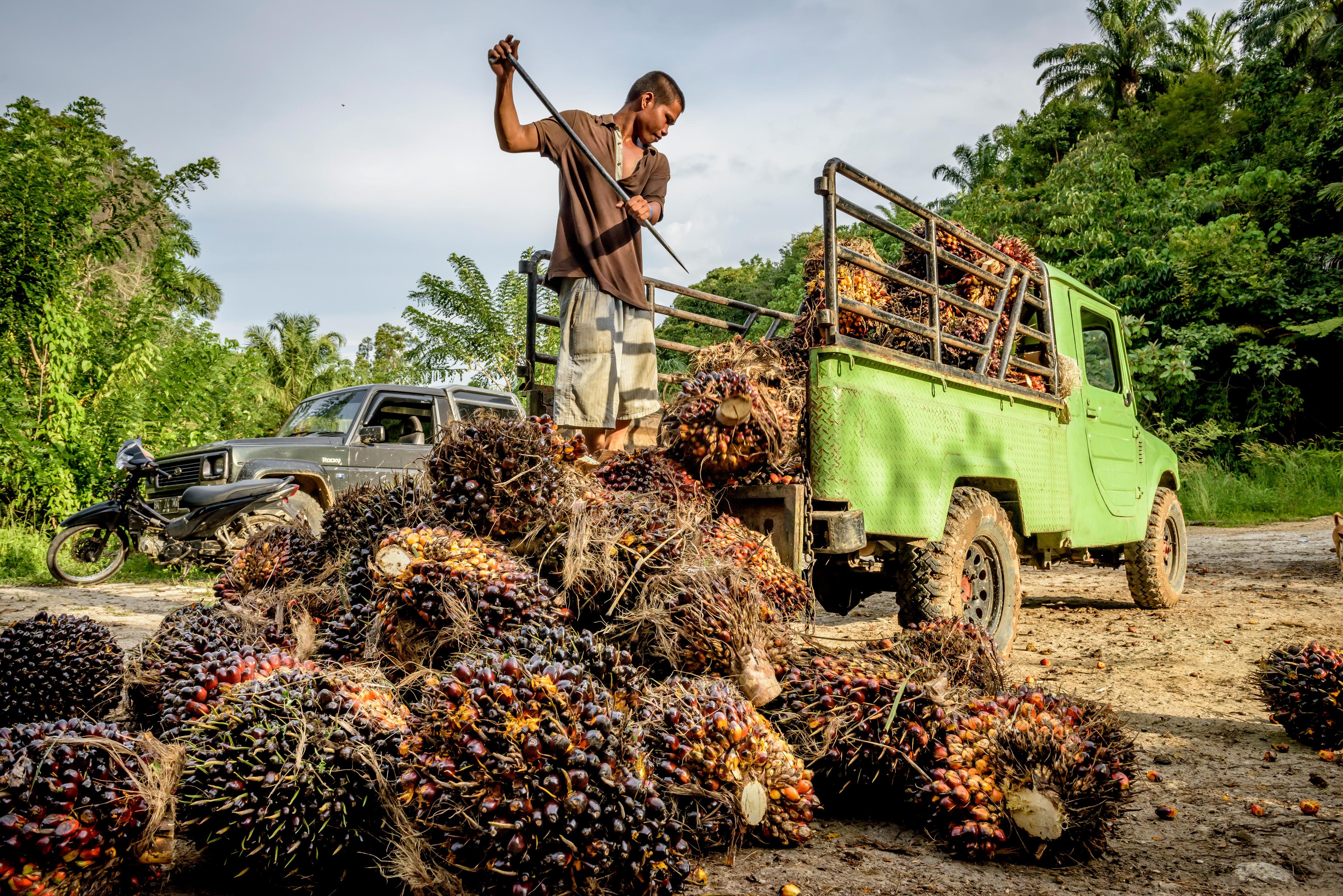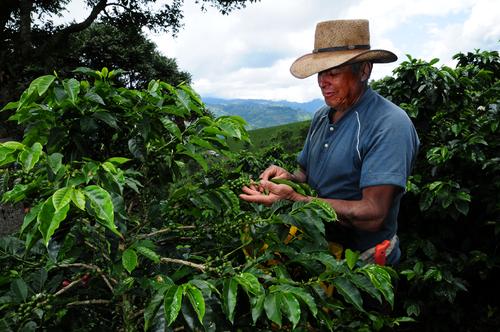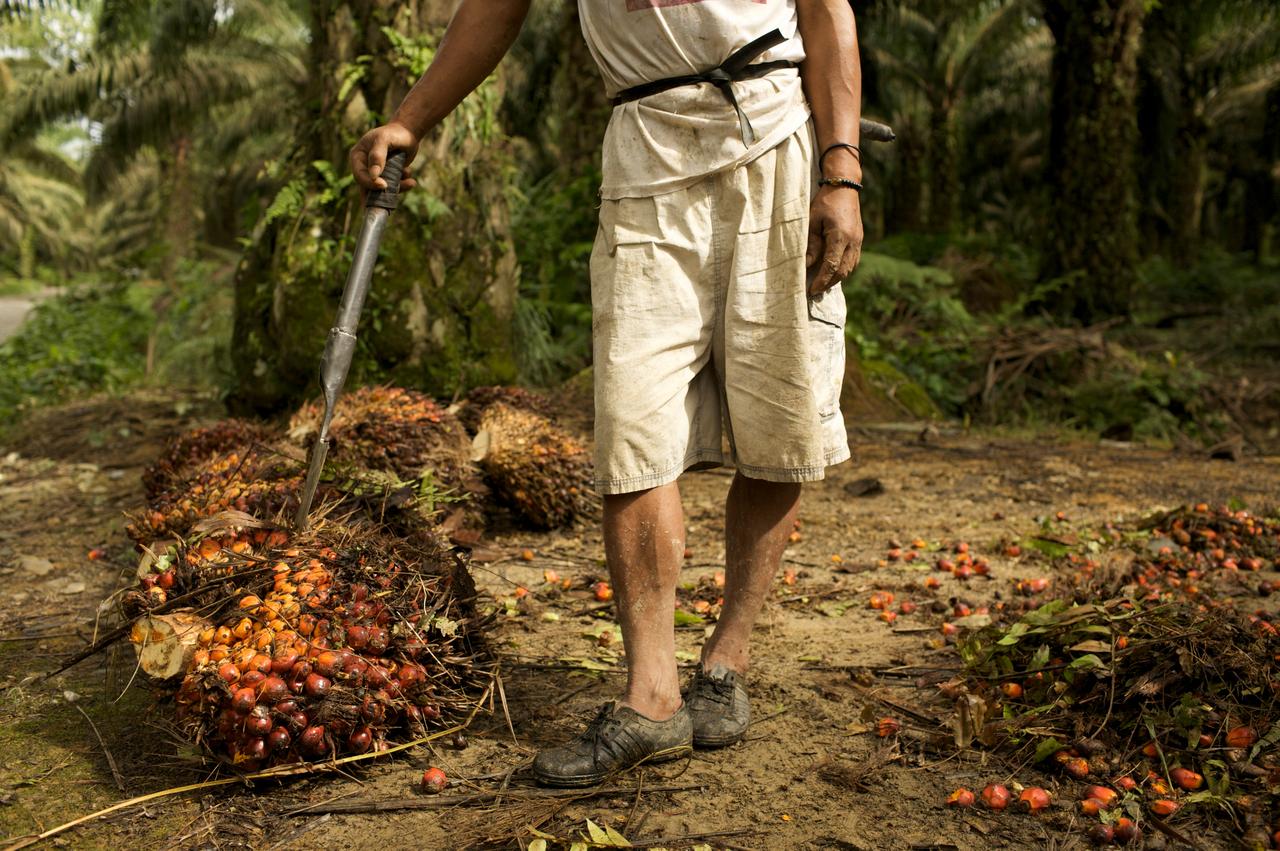
What would happen if the world’s largest retailer made sustainability a business imperative?
That’s the question Conservation International posed to Walmart in 2004, kicking off our work together — and leading to the development of Walmart’s first three sustainability goals back in 2005:
- to use 100% renewable energy;
- to create zero waste;
- and to sell products that sustain our resources and the environment.
Walmart’s decade-long collaboration with Conservation International has also helped bring more sustainable choices to consumers. This includes mitigating deforestation associated with the company’s global palm oil footprint and implementing innovative sourcing strategies for coffee, jewelry and seafood.
Our plan
In 2015, Conservation International began helping Walmart integrate sustainability into its supply chains and supporting production systems that are more resilient to climate change with fewer social and environmental impacts. Conservation International has advised Walmart on the commodity sourcing policies and practices it expects suppliers to adopt in recognition of the important role healthy forests play for climate and biodiversity. We also supported the development of the company’s sustainable sourcing goals for palm oil, beef, soy, coffee, cocoa, and seafood by helping Walmart evaluate the impact of sourcing policies on nature and communities — and across the broader retail and consumer goods industries.
In 2020, Conservation International worked with Walmart to establish a new, bold sustainability goal related to global land and ocean conservation. Conservation International’s objective was to quantify the scale of Walmart’s impact in 13 commodities and identify the most important and relevant production areas for the business as a way of focusing its interventions and achieving impacts at scale. Targeting these places has allowed Walmart and its suppliers to become a stronger force in supporting more sustainable production, conservation, and restoration. These efforts complement and extend Walmart’s sustainability goals beyond carbon neutrality and more sustainable sourcing.
Conservation International, Walmart, and the Walmart Foundation are now working with communities, government and the private sector to design and achieve shared development and conservation goals. For example, in North Sumatra, Indonesia, Conservation International is working with the Coalition for Sustainable Livelihoods to drive economic development, reduce poverty and improve natural resource management around commodity production.
In Huila, Colombia, we are developing a jurisdictional approach that better aligns public and private entities to respond to environmental challenges facing coffee and cocoa communities—as well as restoring degraded riparian areas.
In East Java, Indonesia, we are coordinating a community-developed, place-based improvement program to realize economic, environmental, and social responsibility in the shrimp aquaculture sector.
In the Pacific Islands, we are implementing and scaling jurisdictional initiatives for South Pacific albacore tuna, leveraging policy and market-based approaches to strengthen the environmental, social, and economic performance of longline tuna fisheries at scale.
Opportunity for impact
Walmart operates 10,500 stores and clubs in 19 countries, employing more than 2 million associates worldwide. It is supplied by a global supply chain of more than 100,000 businesses.
Areas of work
Walmart’s global scale and influence goes beyond its own supply chain. It can support more sustainable and equitable sourcing practices for suppliers, competitors, and entire sectors. Walmart has aggressively implemented voluntary sustainable sourcing initiatives that have been critical for improving the resilience of supply chains. The complexity of agriculture-driven deforestation requires collaboration across sectors, support from policymakers and large-scale solutions to alter current models of production. Walmart can play a unique role — combining purchasing power and industry influence to improve the demand for sustainably sourced products, while collaborating and investing to improve production systems and market incentives.

Walmart moves to certified sustainable private-brand coffee in its U.S. stores
The coffee we drink depends on the health, prosperity, and well-being of more than 10 million smallholder producers across 10 million hectares of coffee farms — and the nature that sustains them. Rising temperatures, drought and changing weather patterns are causing major coffee-producing areas of the world to become less suitable for production — affecting both the long-term supply of coffee and the millions of people who rely on the coffee industry for their livelihoods. In 2017, Conservation International worked with Walmart on a strategy to improve the sustainability of the coffee supply chain, resulting in the company’s goal to source more sustainable private-brand coffee for U.S. Walmart stores by 2020. Walmart was the first North American grocery retailer to join Conservation International and was able to meet its sourcing goal one year ahead of schedule. Separate from Walmart’s efforts, the Walmart Foundation helped advance the sustainability of global coffee, funding a program with Conservation International in 2019 to map, monitor and understand the role of coffee in forest conservation in Colombia and Indonesia — including how climate change might shift coffee production into new landscapes, accelerating deforestation. By equipping decision makers with clearer information about the impacts coffee can have on forests, Conservation International hopes to stimulate further commitments to zero deforestation in coffee production and sourcing.

Transitioning Walmart products to 100% certified sustainable palm oil
Palm oil is found in about half of all consumer products. In 2010, Walmart set a goal to source 100 percent certified sustainable palm oil for all its private brand products by 2015. Since then, Conservation International has helped Walmart make progress toward its goal, by producing materials to help educate Walmart’s thousands of suppliers on how to source certified sustainable palm oil. Through this work, Walmart influenced its supply chain, with 85 percent of the company’s private-label palm oil suppliers noting that Walmart influenced them to implement more sustainable sourcing practices. In 2022, 88% of palm oil in Walmart private brand products was RSPO certified segregated, RSPO certified mass balance, or certified to an equivalent standard, according to supplier reports.

Sustainable and equitable seafood
With funding from the Walmart Foundation, Conservation International is working in Fiji, New Caledonia, and Indonesia to facilitate collaboration between the local seafood industry, government agencies and seafood buyers to co-create place-based initiatives that maximize the value of tuna fisheries and shrimp farms. The goal is to improve management in seafood producing areas by aligning strategic investment, science, and policy with business’ sustainability objectives. By focusing on more equitable solutions that put producers and their communities at the forefront of improvement plans and innovative approaches to fisheries and aquaculture management, these place-based projects aim to achieve positive environmental, social, and economic outcomes — such as more sustainable harvesting practices, safe and equitable working conditions, and economic profitability for those involved.